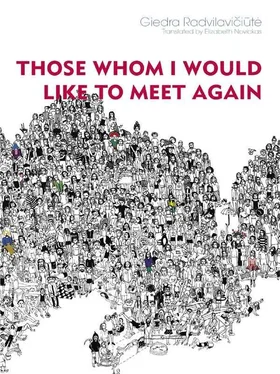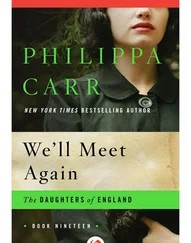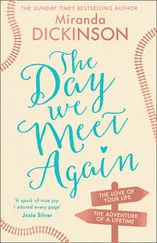“In Riga? Do you know how much that costs? Besides, don’t think that’ll get you out of anything — they’ll still put you through all the paces first: embalming, a coffin, a wake, your face twisted into an expression you’d never have made while alive …”
“So, no funeral. Wrap me in foil and throw me in the oven..”
I know that many people might consider her an insufferable cynic, but — she isn’t. She uses Russian puns and artificial crudity to save herself from her own exceptional sensitivity. She apparently thought I needed to suffer a bit, just now. I’ll wait a bit, I thought, and maybe she’d start talking normally soon. What I needed most at this stage of my life was gentleness. And protection. In fact, I was familiar with my state of mind from a few years earlier — what I felt like was a cracked egg. I tried to change the subject:
“Yesterday, a neighbor came by and told me he’d celebrated New Year’s in the country with his wife and grandchild. He’s got a wooden cottage near Ignalina, I’ve told you about it. He fired up his stove, he said, chased away the cottage’s eternal chill, cooked chicken and fish, drank some wine, then tried to call one son, and tried to call another, but the line was dead. Then he went to bed and rats started running around the place. He said, ‘I looked up, and there, in the moonlight, like in a horror movie, there was one hanging from the child’s bed …’ They were everywhere, he said — on the toys, on the books, the curtains, and on the food. At first he and his wife managed to scare them all off, but by the time dawn came around the squeaking had driven them so crazy that my neighbor got out his late father’s shotgun … Can you believe it?”
“So … he shot one. What would you have done?” From her intonation I felt she was going to hang up on me any minute, but I couldn’t stop:
“I wouldn’t have done anything. The rats would have eaten me alive … and, speaking of which, I really need to tell you what you’ll need to do when I die.”
“If you only knew,” she sighed, “how sick I am of this subject. Why has this become so important to you, lately, when you don’t have any real reason to …?”
“I read, recently, that a person sits on their death like they’re sitting on a barrel of gunpowder, but goes ahead lighting matches anyway, flinging sins about like they’re cigarette butts.”
“So call your writer friends and let them listen to you go senile. What’s death to a writer, anyway? A blow. What’s a woman to them? A hole. When writers die, I’ll tell you what should be done to them … why even bother dressing them up for the open casket? No, just glue their mouths shut, that’s all the dignity they need. Listen: why don’t you write down for me what you want me to do after you die. Okay? Whatever you want, I’ll do. I’ll even sign a contract. For a small fee …” And with that, she finally hung up. Until our next call (or, rather, hers).
That’s easy to say, “write it down.” But what could I possibly add to what I’ve already written? It seems I’ve already gone over it all. About growing old and withering away. Laziness, panic, and desperation. The forehead wrinkle you get from worrying too much over the deaths of loved ones, or from looking into the sun for too long without sunglasses. Old-age spots on the arms that the uninformed still manage to confuse for freckles. I’ve written about the inevitable solitude, that circle drawn around me by some unseen hand, that border only three creatures can cross without frightening me — the cat, my daughter, and Nobody. (Or, in order: my daughter, the cat, then Nobody.) About the impossibility of turning back time, and my total inability to adjust to essential changes — for example, the division of the common hall outside my apartment. All I could still do would be to produce an epilogue for my friend. In the nineteenth century, people were still relying pretty heavily on epilogues. Oftentimes you can’t even figure out from the epilogue what had happened earlier — the writer, acting like a historian, reports on what had finally transpired, and to whom, in concise sentences full of information and drained of sentiment.
Not long ago, I read in the newspaper that 250 swans had died in the Volga Federal District over the autumn. And before falling asleep I would imagine the local inhabitants, with masks and rubber boots, plodding through a tulle of swans’ wings, dragging them by their necks, leaving wide trails in the tall dead bent grass. Avian flu is considerably worse than anyone realizes. We might all die of it. But I feel like I’ve already mentioned that to someone recently. Maybe even today. Who was it? That’s the first sign that I’m losing my memory. They say hardening of the arteries can lead to dementia. Cholesterol coats the veins like frost on power lines. I knew a relatively young woman who laughed when she was diagnosed. She died four months later. She spent her last three days awake, constantly demanding, shouting, day and night, that all the people in her refrigerator be taken out at once. She wrapped a head of cabbage up like a sick child and kept it on her pillow. No medication could put her to sleep.
EPILOGUE
Vitia’s telephone number is +370 675 127 13. His apartment (on Oland  Street, or else Viršulišk
Street, or else Viršulišk  s, next to the Church of Blessed Jurgis Matulaitis) has two exits. Just the same as in my apartment, but in my apartment the door from the kitchen to the hallway will already be bricked over; or, more accurately, it will still open inward, as it always has, but there will be a plastered wall behind it. Vitia started remodeling the following week. And, remember, I gave him my eight square meters of corridor. (For this epilogue.) The moment will come, in time, as funeral-home staff like to say, when “close friends and loved ones will be left alone in the viewing area to bid farewell to the deceased”—meaning, in this case, Vitia, you, and three of Vitia’s men, standing around my coffin. Dressed, naturally, in black. And with pasts that won’t necessarily correspond to their present. One of these men will be Petras. Petrarka. He’ll probably be the one who hangs around right inside the exit after all the staff file out. I know for a fact that my daughter won’t want to be there at that moment; she was always afraid of dead bodies, even as far back as her grandmother’s funeral. And yes, other people will undoubtedly attend the ceremony, but — perhaps it’s wicked of me — they don’t concern me in the least. Now: in “viewing areas” like this, there are almost always a few vases, a little table, a couple of chairs, multitudes of wreaths and flowers, and … another coffin. Yes, leaning against the wall; maybe even more than one; there are usually at least a few like that, just standing around, so it’s easy enough to plant one ahead of time. Of course, if there’s been a flu epidemic, there will be a lot more of them there, both open and closed. They say that if we’re really hit hard, the undertaking business will thrive, at least at first, becoming the fundamental point of commerce in Western society; but then, soon enough, everyone will start getting buried in permeable polythene bags. Anyway, the two coffins — mine and the one leaning against the wall — will be switched by Vitia’s three friends. The one I’m lying in will be shut without any farewells, and they’ll lean it up against the wall, just like the other one. Whereas the other one will now be on the coffin stand. When the funeral home staff opens the door, you, my dear, cynical friend, will be standing weeping next to the closed coffin. Vitia will hold you by the elbow. I know that this moment will be the trickiest for you. It seems critical to me too. A week ago, I went out to look over my old home town Viršulišk
s, next to the Church of Blessed Jurgis Matulaitis) has two exits. Just the same as in my apartment, but in my apartment the door from the kitchen to the hallway will already be bricked over; or, more accurately, it will still open inward, as it always has, but there will be a plastered wall behind it. Vitia started remodeling the following week. And, remember, I gave him my eight square meters of corridor. (For this epilogue.) The moment will come, in time, as funeral-home staff like to say, when “close friends and loved ones will be left alone in the viewing area to bid farewell to the deceased”—meaning, in this case, Vitia, you, and three of Vitia’s men, standing around my coffin. Dressed, naturally, in black. And with pasts that won’t necessarily correspond to their present. One of these men will be Petras. Petrarka. He’ll probably be the one who hangs around right inside the exit after all the staff file out. I know for a fact that my daughter won’t want to be there at that moment; she was always afraid of dead bodies, even as far back as her grandmother’s funeral. And yes, other people will undoubtedly attend the ceremony, but — perhaps it’s wicked of me — they don’t concern me in the least. Now: in “viewing areas” like this, there are almost always a few vases, a little table, a couple of chairs, multitudes of wreaths and flowers, and … another coffin. Yes, leaning against the wall; maybe even more than one; there are usually at least a few like that, just standing around, so it’s easy enough to plant one ahead of time. Of course, if there’s been a flu epidemic, there will be a lot more of them there, both open and closed. They say that if we’re really hit hard, the undertaking business will thrive, at least at first, becoming the fundamental point of commerce in Western society; but then, soon enough, everyone will start getting buried in permeable polythene bags. Anyway, the two coffins — mine and the one leaning against the wall — will be switched by Vitia’s three friends. The one I’m lying in will be shut without any farewells, and they’ll lean it up against the wall, just like the other one. Whereas the other one will now be on the coffin stand. When the funeral home staff opens the door, you, my dear, cynical friend, will be standing weeping next to the closed coffin. Vitia will hold you by the elbow. I know that this moment will be the trickiest for you. It seems critical to me too. A week ago, I went out to look over my old home town Viršulišk  s — I don’t think it’ll be as complicated as we imagine; I waited around for hours, saying my last farewells to two people I didn’t know. Not long ago I read in the Lietuvos Rytas newspaper that one old lady found out after the funeral that the coffin she’d seen buried didn’t actually contain her husband — despite the tiny size of the town, they were burying two people that day, and, well, these things happen.
s — I don’t think it’ll be as complicated as we imagine; I waited around for hours, saying my last farewells to two people I didn’t know. Not long ago I read in the Lietuvos Rytas newspaper that one old lady found out after the funeral that the coffin she’d seen buried didn’t actually contain her husband — despite the tiny size of the town, they were burying two people that day, and, well, these things happen.
Читать дальше

 Street, or else Viršulišk
Street, or else Viršulišk  s, next to the Church of Blessed Jurgis Matulaitis) has two exits. Just the same as in my apartment, but in my apartment the door from the kitchen to the hallway will already be bricked over; or, more accurately, it will still open inward, as it always has, but there will be a plastered wall behind it. Vitia started remodeling the following week. And, remember, I gave him my eight square meters of corridor. (For this epilogue.) The moment will come, in time, as funeral-home staff like to say, when “close friends and loved ones will be left alone in the viewing area to bid farewell to the deceased”—meaning, in this case, Vitia, you, and three of Vitia’s men, standing around my coffin. Dressed, naturally, in black. And with pasts that won’t necessarily correspond to their present. One of these men will be Petras. Petrarka. He’ll probably be the one who hangs around right inside the exit after all the staff file out. I know for a fact that my daughter won’t want to be there at that moment; she was always afraid of dead bodies, even as far back as her grandmother’s funeral. And yes, other people will undoubtedly attend the ceremony, but — perhaps it’s wicked of me — they don’t concern me in the least. Now: in “viewing areas” like this, there are almost always a few vases, a little table, a couple of chairs, multitudes of wreaths and flowers, and … another coffin. Yes, leaning against the wall; maybe even more than one; there are usually at least a few like that, just standing around, so it’s easy enough to plant one ahead of time. Of course, if there’s been a flu epidemic, there will be a lot more of them there, both open and closed. They say that if we’re really hit hard, the undertaking business will thrive, at least at first, becoming the fundamental point of commerce in Western society; but then, soon enough, everyone will start getting buried in permeable polythene bags. Anyway, the two coffins — mine and the one leaning against the wall — will be switched by Vitia’s three friends. The one I’m lying in will be shut without any farewells, and they’ll lean it up against the wall, just like the other one. Whereas the other one will now be on the coffin stand. When the funeral home staff opens the door, you, my dear, cynical friend, will be standing weeping next to the closed coffin. Vitia will hold you by the elbow. I know that this moment will be the trickiest for you. It seems critical to me too. A week ago, I went out to look over my old home town Viršulišk
s, next to the Church of Blessed Jurgis Matulaitis) has two exits. Just the same as in my apartment, but in my apartment the door from the kitchen to the hallway will already be bricked over; or, more accurately, it will still open inward, as it always has, but there will be a plastered wall behind it. Vitia started remodeling the following week. And, remember, I gave him my eight square meters of corridor. (For this epilogue.) The moment will come, in time, as funeral-home staff like to say, when “close friends and loved ones will be left alone in the viewing area to bid farewell to the deceased”—meaning, in this case, Vitia, you, and three of Vitia’s men, standing around my coffin. Dressed, naturally, in black. And with pasts that won’t necessarily correspond to their present. One of these men will be Petras. Petrarka. He’ll probably be the one who hangs around right inside the exit after all the staff file out. I know for a fact that my daughter won’t want to be there at that moment; she was always afraid of dead bodies, even as far back as her grandmother’s funeral. And yes, other people will undoubtedly attend the ceremony, but — perhaps it’s wicked of me — they don’t concern me in the least. Now: in “viewing areas” like this, there are almost always a few vases, a little table, a couple of chairs, multitudes of wreaths and flowers, and … another coffin. Yes, leaning against the wall; maybe even more than one; there are usually at least a few like that, just standing around, so it’s easy enough to plant one ahead of time. Of course, if there’s been a flu epidemic, there will be a lot more of them there, both open and closed. They say that if we’re really hit hard, the undertaking business will thrive, at least at first, becoming the fundamental point of commerce in Western society; but then, soon enough, everyone will start getting buried in permeable polythene bags. Anyway, the two coffins — mine and the one leaning against the wall — will be switched by Vitia’s three friends. The one I’m lying in will be shut without any farewells, and they’ll lean it up against the wall, just like the other one. Whereas the other one will now be on the coffin stand. When the funeral home staff opens the door, you, my dear, cynical friend, will be standing weeping next to the closed coffin. Vitia will hold you by the elbow. I know that this moment will be the trickiest for you. It seems critical to me too. A week ago, I went out to look over my old home town Viršulišk 










